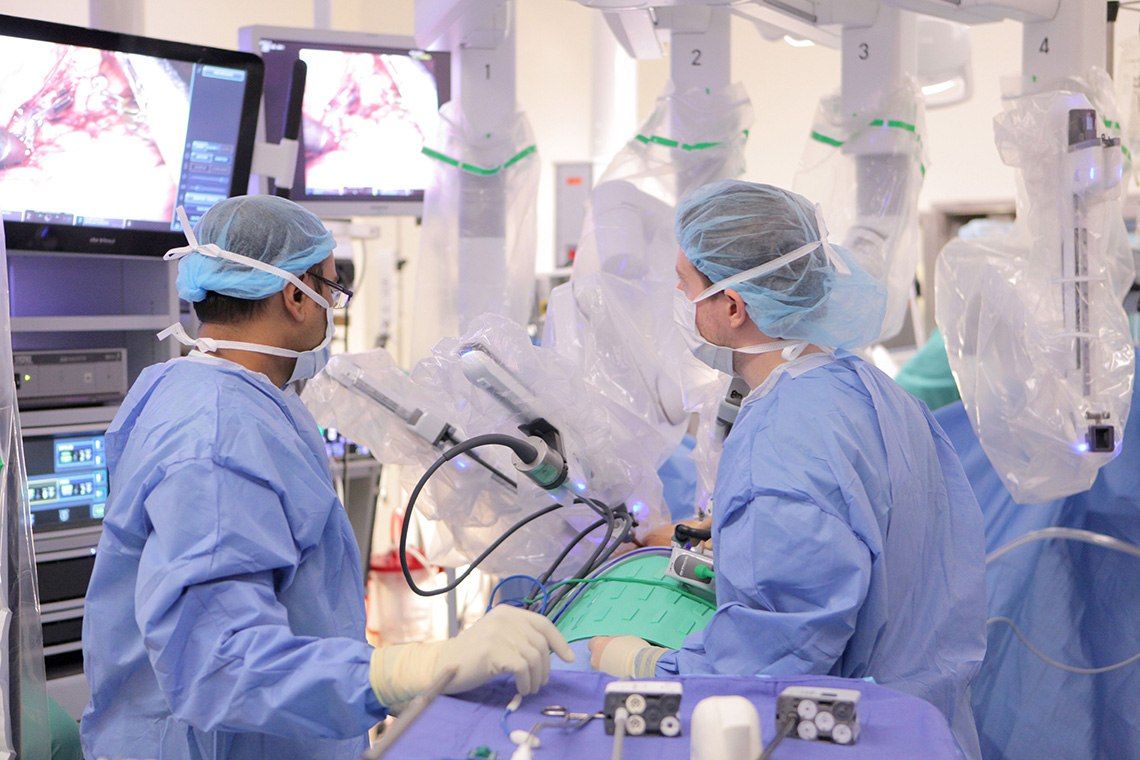
The treatment of esophageal cancer can be complex and requires a team approach. Patients may need surgery, chemotherapy, and/or radiation therapy. The thoracic surgeons at Weill Cornell Medicine|NewYork-Presbyterian collaborate closely with all members of the healthcare team — such as medical and radiation oncologists, gastroenterologists and pathologists — to ensure that patients receive the latest comprehensive care in a compassionate and comfortable setting.
Surgical removal of the esophagus for cancer has traditionally required an open approach using a thoracotomy (an incision in the chest), as well as a laparotomy (abdominal incision). These incisions offer maximal exposure for the surgeon, but may be associated with significant post-operative pain and lung complications, including pneumonia.
At Weill Cornell Medicine, we try to use minimally invasive surgical approaches — such as laparoscopy or video assisted thoracoscopy — for patients with operable esophageal cancer. Telescopes placed through small incisions in the chest and abdomen are used to visualize, manipulate and remove the esophagus and surrounding lymph nodes. We are currently using minimal access approaches for patients with early esophageal cancer or dysplasia.
We are also developing a robotic system to further improve our techniques. During the robotic procedure, the surgeon sits at a console, viewing the surgical field through the robot's "vision system." The surgeon uses controls to operate the various arms and cameras of the robot, which are placed into position in the patient by surgical assistants. The surgery robot enables the surgeon to operate with greater magnification of the surgical field and more precision in the use of surgical instruments.
Minimally invasive surgery to remove the esophagus typically requires a shorter stay in the hospital compared to conventional open surgery. Patients who have minimally invasive esophagectomy also usually need fewer pain medications for postoperative pain relief than those who have traditional open surgery.
Esophageal cancer patient story of Rita Hamilton.